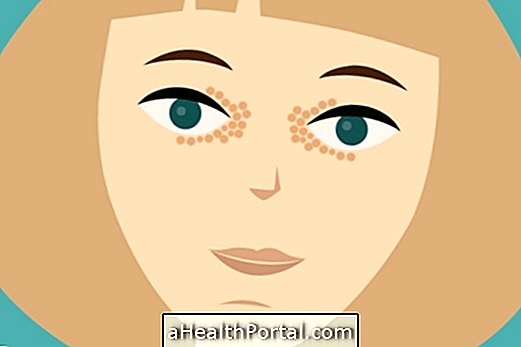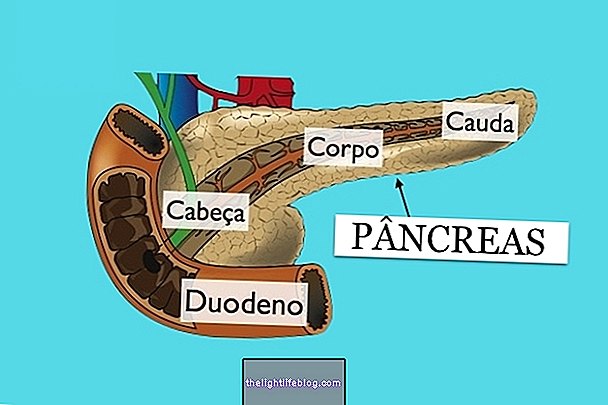Common cold symptoms begin to be felt about 2 to 3 days after being in contact with a cold or after being exposed to factors that increase the chances of flu, such as cold and pollution, for example.
The main symptoms of influenza are:
- Fever, usually between 38 and 40ºC;
- Chills;
- Headache;
- Cough, sneezing, and runny nose;
- Sore throat;
- Muscle pain, especially in the back and legs;
- Loss of appetite and tiredness.
Usually these symptoms appear suddenly and usually last for 2 to 7 days. In general, the fever lasts about 3 days, while the other symptoms disappear 3 days after the fever subsides.

How to cure flu
To heal from a severe flu, it is important to rest, take medicine to relieve pain and fever, such as Paracetamol and Ibuprofen, and treat the symptoms.
Stuffy and runny nose
To improve breathing, you can use the inhalation of boiling water vapor or the aerosol, in addition to washing your nose with serum or sea water, found for sale in pharmacies.
Cough
To improve coughing and secretion, you should drink plenty of water and use home-made throat-soothing remedies such as honey with lemon, cinnamon tea and cloves, and nettle tea.
Fever
To reduce the fever, you should take antipyretic medications, take a lightly cold bath and put wet cloths on the forehead and underarms to help regulate body temperature.
Headache and Muscles
To relieve the headache, one should rest in a quiet, dark place, take chamomile tea and put a damp cloth on the forehead.
Flu in pregnant women, children and the elderly
Influenza in pregnant women, children and the elderly can cause stronger symptoms, and can also cause vomiting and diarrhea, as these groups have the weakest immune system, which makes the body more sensitive.
Therefore, in addition to following the home-made tips to relieve symptoms, in these cases the ideal is to go to the doctor and only take medicines according to medical guidance, not to harm the baby or cause the disease to worsen. Here's how to treat the flu in pregnancy.
Difference between flu and cold
Unlike the flu, the cold does not cause a fever and usually does not bring complications such as diarrhea, severe headache and difficulty breathing.
In general, the cold lasts for about 5 days, but in some cases the symptoms of runny nose, sneezing and coughing can last up to 2 weeks.
Difference between flu, dengue and zika
The main difference is that dengue and zika besides the common flu symptoms also cause itchy body and red spots on the skin. The zika takes about 7 days to disappear, while the symptoms of dengue are stronger and only improve after about 7 to 15 days. To know how to differentiate, see also what are the symptoms of swine flu.

When to go to the doctor
Although it is not necessary to go to the doctor to cure the flu, it is advisable to consult a general practitioner when:
- The flu takes more than 3 days to improve;
- The symptoms worsen over the days, rather than improve;
- Other symptoms include chest pain, night sweats, fever over 40 ° C or cough with greenish phlegm.
In addition, children, the elderly, and patients with risk factors, such as asthma and other types of respiratory problems, should be vaccinated against influenza every year.
To know if the flu secretion is worrisome or not, see what each color of phlegm means.



















